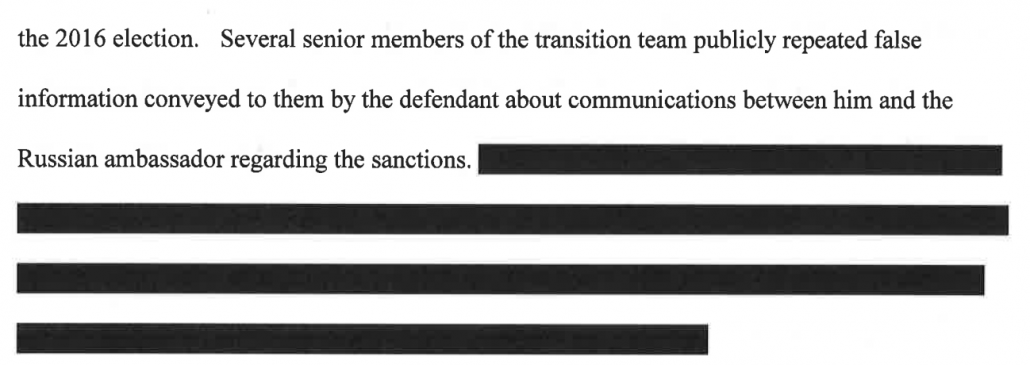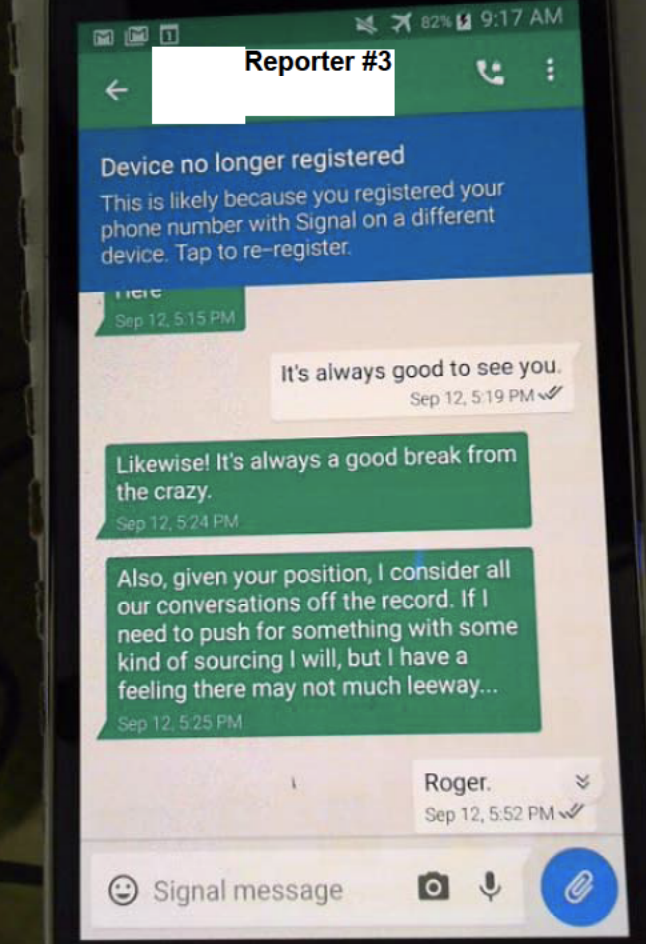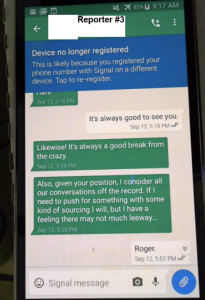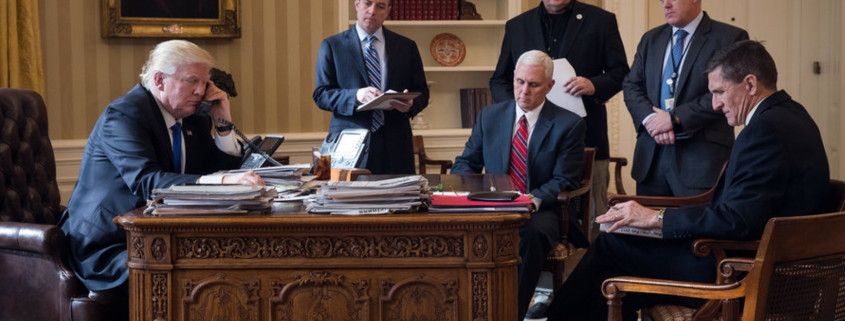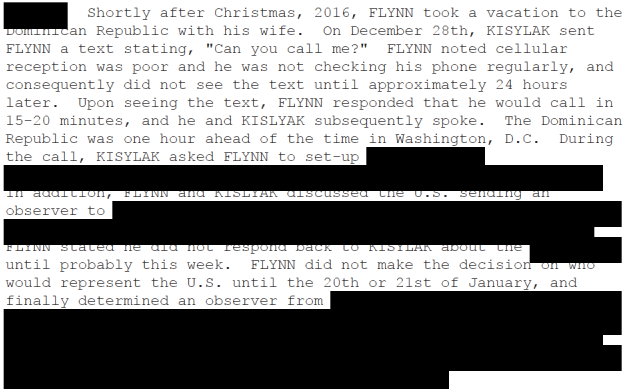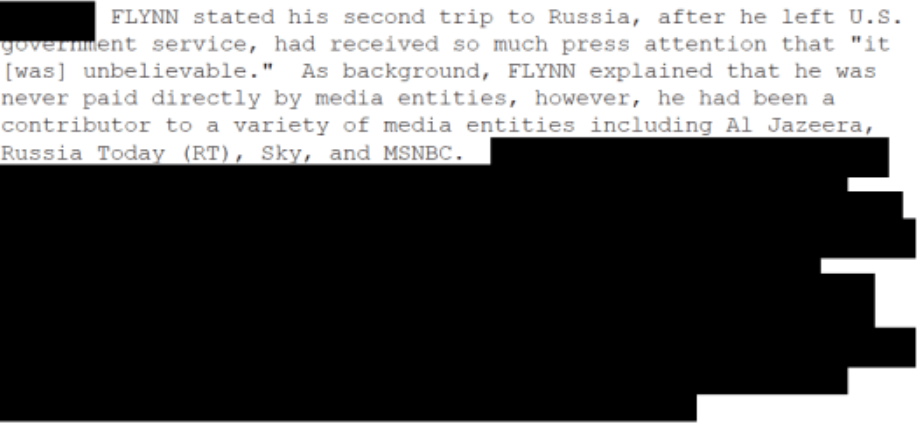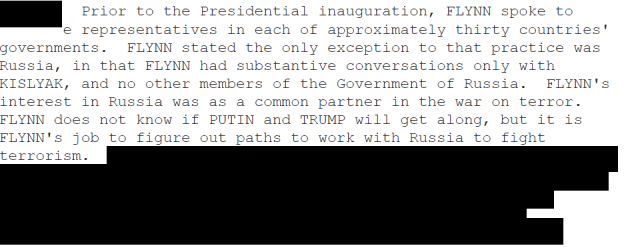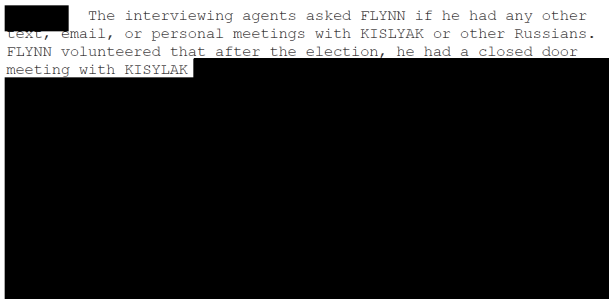Trump’s “Official Acts” to Pay Off a Russian Bribe Should Make Impeachment a Legal Issue, Not Just a Political One
The pearl clutchers screamed about Congresswoman Rashida Tlaib saying that we need to impeach the motherfucker, Donald Trump, demeaning the presidency.* While I’m glad that she has refused to back down from her beliefs in the face of the attacks, I think her more substantial argument about impeachment deserves further attention (which I hope to return to in a later post). More important, I think that the response to Tlaib’s comments has resulted in members of both parties retreating to a debate about Trump’s impeachment using the old formulation that it’s a political, not a legal question.
It is true that impeachment is political question insofar as, so long as there’s the political will, a president can be impeached for anything, even lying about a consensual blowjob immaterial to an investigation into financial scandal. But impeachment is also a legal question. Indeed, the Constitution mandates that the President be removed from office if he is impeached and convicted not just for the unenumerated grab bag of “high crimes and misdemeanors” — where Congress exercises the political will to decide whether a blowjob merits impeachment — but also the enumerated crimes of treason and bribery.
The President, Vice President and all civil Officers of the United States, shall be removed from Office on Impeachment for, and Conviction of, Treason, Bribery, or other high Crimes and Misdemeanors.
In spite of Emmet Sullivan’s question — as one of the only people who has read sealed documents laying out what Trump’s transition team did — about whether Mueller’s investigators considered charging Mike Flynn with treason, there’s no chance that Trump will be named in a treason charge.
But there is very good chance he will be named in a conspiracy involving a quid pro quo trading dirt and real estate deals for sanctions relief and other policy considerations.
The other day, I realized something ironic: in precisely the same period Trump was entering in an apparent quid pro quo with Russians, John Roberts was authoring a unanimous Supreme Court decision that clarified the limits of quid pro quo bribery.
And while the Supreme Court believed that Governor Bob McDonnell had not accepted bribes for setting up meetings in exchange for gifts, the language Roberts wrote in the weeks after Trump’s son told some Russians they would revisit Magnitsky sanctions if his father won does not so narrow the definition of bribery as to make Trump’s actions legally excusable.
Roberts described an official act this way:
In sum, an “official act” is a decision or action on a “question, matter, cause, suit, proceeding or controversy.” The “question, matter, cause, suit, proceeding or controversy” must involve a formal exercise of governmental power that is similar in nature to a lawsuit before a court, a determination before an agency, or a hearing before a committee. It must also be something specific and focused that is “pending” or “may by law be brought” before a public official. To qualify as an “official act,” the public official must make a decision or take an action on that “question, matter, cause, suit, proceeding or controversy,” or agree to do so.
Notably, the bribed public official doesn’t actually have to follow through on the official act he agreed to take, so it doesn’t help Trump that Congress has repeatedly prevented him from overturning sanctions on Russia.
Under this Court’s precedents, a public official is not required to actually make a decision or take an action on a “question, matter, cause, suit, proceeding or controversy”; it is enough that the official agree to do so.
And there are a number of data points in the public record that suggest Trump did believe he had made a deal with the Russians and that Russia had what it believed was a commitment from Trump. For example, four of the people who attended the June 9 meeting testified (most under oath) that Don Jr said his father would revisit sanctions relief if he got elected.
Natalia Veselnitskaya said Don Jr said they’d revisit the topic.
Mr. Trump, Jr. politely wound up the meeting with meaningless phrases about somewhat as follows: can do nothing about it, “if’ or “when” we come to power, we may return to this strange and confusing story.
Ike Kaveladze said that Don Jr said they might revisit the issue if his father won.
There was no request, but as I said, it was a suggestion that if Trump campaign wins, they might get back to the Magnitsky Act topic in the future.
Rinat Akhmetshin said that Don Jr said they would revisit Magnitsky when they won.
A. I don’t remember exact words which were said, but I remember at the end, Donald, Jr., said, you know, “Come back see us again when we win.” Not “if we win,” but “when we win.” And I kind of thought to myself like, “Yeah, right.” But it happened, so — but that’s something, see, he’s very kind of positive about, “When we win, come back and see us again.” Something to that effect, I guess.
Anatoli Samochornov, Veselnitskaya’s translator, who is the most independent witness and the only one who didn’t compare his story with others, said that Don Jr said they would revisit the issue if Trump won.
A. Like I described, I remember, not verbatim, the closing that Mr. Donald Trump, Jr., provided, but that’s all that I recall being said from the other side.
MR. PRIVOR: That closing being that Donald Trump, Jr., suggested —
MR. SAMOCHORNOV: If or when yes, and I do not remember if or when, but if or when my father becomes President, we will revisit this issue.
And Ike Kaveladze, in the call back to his boss to report on the meeting that witnesses observed, was happy with the outcome of the meeting.
It’s not just the Russians who seem to have acted on the meeting. Michael Cohen’s allocution seems to suggest that the meeting tied directly to the negotiations over a Trump Tower, because he took steps to travel to Russian on the day of the meeting.
From on or about June 9 to June 14, 2016, Individual 2 sent numerous messages to COHEN about the travel, including forms for COHEN to complete. However, on or about June 14 , 2016, COHEN met Individual 2 in the lobby of the Company’s headquarters to inform Individual 2 he would not be traveling at that time.
Remember: a “senior campaign official” was involved in discussions about trips to Russia. And had the President’s personal lawyer actually taken this trip to St. Petersburg, the plan was to meet Vladimir Putin (who did attend the forum that year).
While the dates provided in Cohen’s allocution also suggest the disclosure that Russia hacked the DNC halted Cohen’s plans “at that time,” we know that the plans did resume after that canceled trip into July.
The Russians certainly believed they had an agreement. They put in some effort to meet again after Trump won. While finding an appropriate communication channel failed for the Agalarovs, Flynn and Jared Kushner moved to establish a back channel via Sergey Kislyak. When Trump met with Preet Bharara and reportedly agreed to keep him on, Veselnitskaya panicked, and suggested Trump planned to keep him on so he could take him out.
In its indictment of Veselnitskaya, DOJ just established that she was actually working as part of the Russian government when she claimed to have fought to get an MLAT request in her Prevezon case. And Veselnitskaya believed that after Trump won the election, he would take out the prosecutor whom she was facing in court. Ultimately, Trump did take out Preet, firing all his US Attorneys in an effort to do so.
And details from Mike Flynn’s allocution provide one important piece of evidence that Russians believed they had received a commitment from Trump.
After Obama imposed sanctions on Russia partly in retaliation for the election year operation, Trump’s team panicked, both because they wanted to improve relations with Russia, but also because Russia’s role in his victory delegitimized the victory. That is, even those unlikely to be unaware of any quid pro quo recognized that the public accounting of Russia’s role in helping defeat Hillary would make it all the more difficult to deal with Russia.
Obama is doing three things politically:
- discrediting Trump’s victory by saying it was due to Russian interference
- lure trump into trap of saying something today that casts doubt on report on Russia’s culpability and then next week release report that catches Russia red handed
- box trump in diplomatically with Russia. If there is a tit-for-tat escalation trump will have difficulty improving relations with Russia which has just thrown USA election to him.
Trump’s response, however, was to reach out to Russia and assure them they didn’t need to worry about Obama’s new policy. In response, the Russians made it very clear that Putin had decided not to respond based on the assurances that Flynn gave Kislyak.
On or about December 30, 2016, Russian President Vladimir Putin released a statement indicating that Russia would not take retaliatory measures in response to the U.S. Sanctions at that time.
On or about December 31, 2016, the Russian Ambassador called FLYNN and informed him that Russia had chosen not to retaliate in response to FL YNN’s request.
Mueller, of course, has the full transcript of what Flynn said to Kislyak that successfully placated Putin. It is highly likely the transcript provides explicit evidence of an official act to pay off his side of the deal, sanctions relief.
All of which is to say that Mueller may well be finalizing a conspiracy indictment of Don Jr and Trump Org laying out a quid pro quo in which Trump agreed to provide sanctions relief (and some other stuff) in exchange for Russia’s help winning the election.
That Mueller might be able to show all this is bribery may not affect Republican willingness to take the action laid out in the Constitution, to convict Trump in an impeachment inquiry. But given that the Constitution specifically envisions impeaching a President who has accepted a bribe, commentators should stop treating impeachment exclusively as a political issue.
Update: I posted this before I had read this analysis from Jack Goldsmith raising concerns about investigating the President for foreign policy decisions. While I think Goldsmith raises key points, he focuses on actions Trump took as President. But that’s one reason I think the transition activities are so important. If I’m right that the calls to Kislyak amount to an official act, then Trump took it to undermine the official policy of the government, not set it as President. Further, The Trump team had been asked — and at least one person had agreed — to not undermine Obama’s policies during the transition. There were several efforts to hide that they were doing so: the indications they couldn’t reengage on Magnitsky sanctions using the same channels as they used during the election, the request for a back channel, and the meeting with Mohammed bin Zayed al-Nahyan that Susan Rice discovered by unmasking the identities of those who met with him.
The actions Trump took that led to Flynn and Comey’s firings were part of an effort to hide these clandestine efforts during the transition. Yes, they were conducted while he was President. But they were conducted to cover up actions taken before he became President. This is why I keep harping on the remarkable lack of curiosity about why Trump really fired Flynn. The public story Trump is telling is assuredly false. The real reason almost certainly ties back to these transition period actions.
As I disclosed in July, I provided information to the FBI on issues related to the Mueller investigation, so I’m going to include disclosure statements on Mueller investigation posts from here on out. I will include the disclosure whether or not the stuff I shared with the FBI pertains to the subject of the post.
*Full disclosure: I donated to Tlaib’s campaign.





